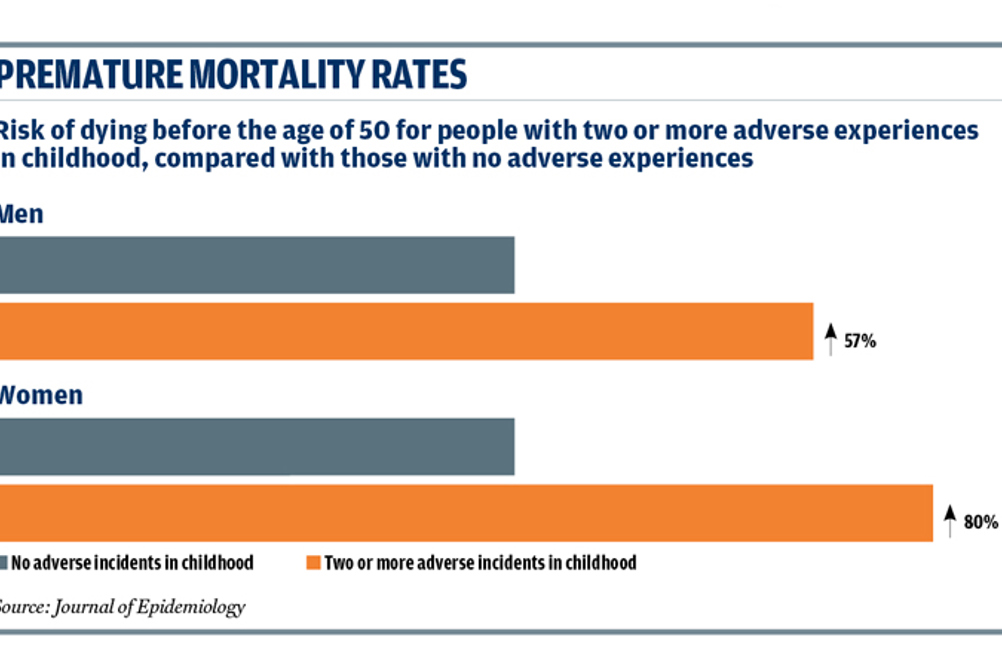
DOWNLOAD A PDF OF THIS GRAPHIC
Authors Michelle Kelly-Irving, Benoit Lepage, Dominique Dedieu, Mel
Bartley, David Blane, Pascale Grosclaude, Thierry Lang, Cyrille
Delpierre
Published by European Journal of Epidemiology, July 2013
SUMMARY
Researchers from the French National Institute of Health and Medical Research, in collaboration with colleagues from University College London, studied whether those who suffered abuse, maltreatment or trauma during early childhood were more likely to die before the age of 50 than those who had not. They wanted to test a theory that experiences causing stress during sensitive periods of rapid cognitive and neurological development could be linked to early death.
Their report, Adverse Childhood Experiences and Premature All-cause Mortality, studied data from more than 15,000 people (7,816 men and 7,405 women) and compared premature death rates to experiences of adversity at ages seven, 11 and 16.
Register Now to Continue Reading
Thank you for visiting Children & Young People Now and making use of our archive of more than 60,000 expert features, topics hubs, case studies and policy updates. Why not register today and enjoy the following great benefits:
What's Included
-
Free access to 4 subscriber-only articles per month
-
Email newsletter providing advice and guidance across the sector
Already have an account? Sign in here

